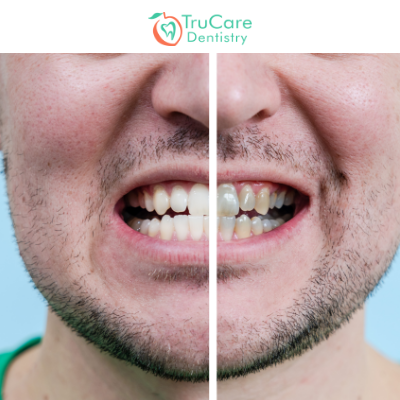
Like other body parts, your mouth can constantly be changing, too. You might realize that one or more of your teeth might not be where they used to be.
Wondering if that’s normal. Let’s find out! We’re here to help you understand why your teeth might shift and what you can do about it.
The periodontal ligament and cementum material connect your teeth to your jawbone. These allow your mouth to withstand force from regular activities like chewing. They allow flexibility over time, so your teeth may shift naturally throughout your life. This also allows for treatment that can deliberately alternate your teeth and bite position.
So what can cause these teeth shifts?
Growth
It might surprise you, but your lower jaw never stops growing! It keeps growing forward, causing your lower front teeth to bump into your upper front teeth. Even though this happens on a small magnitude, this can cause crowding or spacing between your teeth. Over time, these changes can affect your bite. Your lower jaw also reduces in width over time, causing crowding in your front lower teeth. Some people may not need any work, but some may require treatments like bridgework to correct this.
Teeth Grinding
Also known as bruxism, teeth grinding and clenching are destructive processes that can cause your teeth to wear out. Grinding your teeth may also cause teeth shifts over the years. It can occur due to the shorter teeth and bite changes that bruxism can cause. Teeth grinding can even damage the surrounding tissues that support your teeth.
Gum Disease
Periodontitis (gum disease) affects the gums and supporting tissues that keep your teeth in place. They cause inflammation in gum tissue and bones, resulting in bone loss. Hence, tooth shifts are one of the complications of periodontitis.
Dental Procedures
If you’ve had dental procedures like tooth alignment done, it may have shifted your teeth from their natural position. You may have noticed that once you stop wearing braces or aligners, your teeth may return to their natural positions. For some of you, your dentist might suggest retainers permanently bonded to your teeth after treatment. But these, too, are still at risk of some teeth shifts. Some researchers suggest this is caused by retainers not being appropriately bonded.
Gum diseases and bone loss can also cause teeth shifts once your braces come off.
Tooth Loss
Tooth loss, even from a tooth extraction by a professional, can cause tooth shifts. The surrounding teeth may try to fill the space left by the lost tooth, not just by adjacent teeth but by the teeth above/below the space, too.
Canines pose a greater risk of this. If you lose a canine tooth, the adjacent teeth might shift to fill the space left by the loss. Hence, the standard advice is to replace lost teeth with implants, etc.
Aging
The aging of your lips affects your smile and can change the pressure on your teeth, too. Since your lips enclose your teeth on the outside, this pressure can affect the natural placement of your teeth. As your lips get tighter with age, the force can cause your teeth to crowd.
What to do?
Now that you know what can cause your teeth to shift, you must wonder what you can include in your oral care to avoid tooth shifts and the problems they can cause. Here are a few things you can look into!
Good Oral Care
Like other dental issues, good oral care prevents tooth shifts, too. Maintaining good oral hygiene can help prevent gum disease and tooth loss that it can cause.
To maintain good oral care:
- Brush your teeth twice a day
- Floss everyday
- Avoid smoking
- Consume sugary foods in moderation
- Regular dental checkups
Resolve Teeth Grinding
Regular dental checkups can help with recognizing issues like teeth grinding, too. If you’re unsure whether you grind your teeth, your dentist can probably spot signs of teeth wear teeth grinding can cause. You can opt for solutions like mouth guards worn at night to prevent wear from grinding your teeth in your sleep when you can’t consciously stop it.
Retainers
Retainers are the best way out there to prevent teeth from shifting.
To prevent teeth shifting after braces, your dentist might fit you with a retainer and ask you to wear it as much as possible throughout the day and night.
Sometimes, your dentist might suggest permanent retainers (fixed or lingual retainers) to help maintain teeth alignment throughout your lifetime. But you must get them checked regularly.
Some other treatments to address teeth shifting are:
- Dental restorations like crowns
- Tooth implants for missing teeth
- Treating underlying causes like infections and decay
Teeth shifting might not be a severe issue every time, but left untreated for too long, it can lead to serious dental problems. Addressing the underlying issues is the first and most crucial step in resolving tooth shifts. Hence, checking in with your dentist is best, especially in case of tooth shifts. They can identify and suggest a plan to resolve the issues causing shifting in your teeth, including the shift itself.
Are your teeth shifting? We’re here to help! If you’re looking for a dentist in Roswell, GA, or neighboring areas such as Alpharetta, Dunwoody, Marietta, Milton, Sandy Springs, or Woodstock, book an appointment at TruCare Dentistry. To know more about our services, visit our website or call (678) 321-7575.
